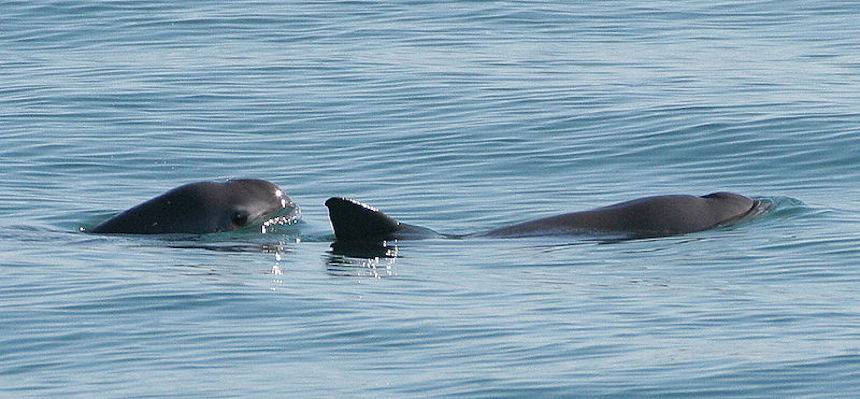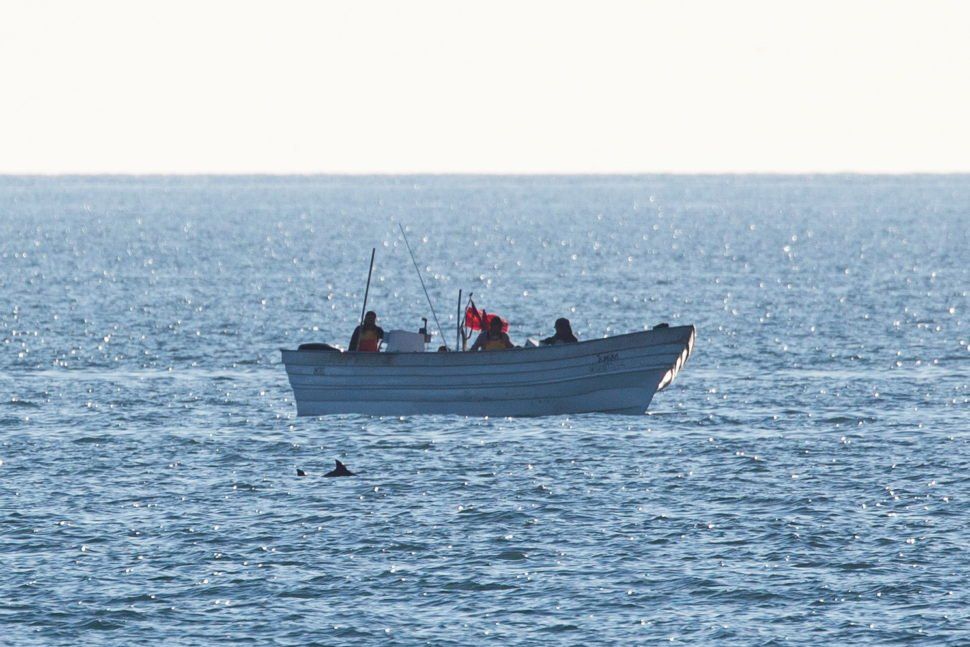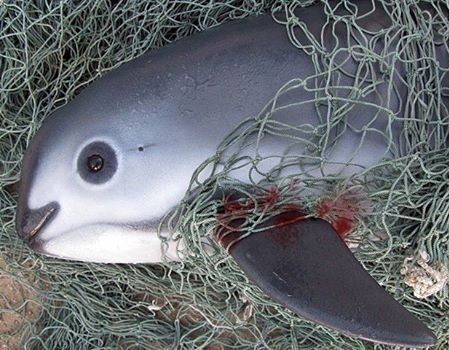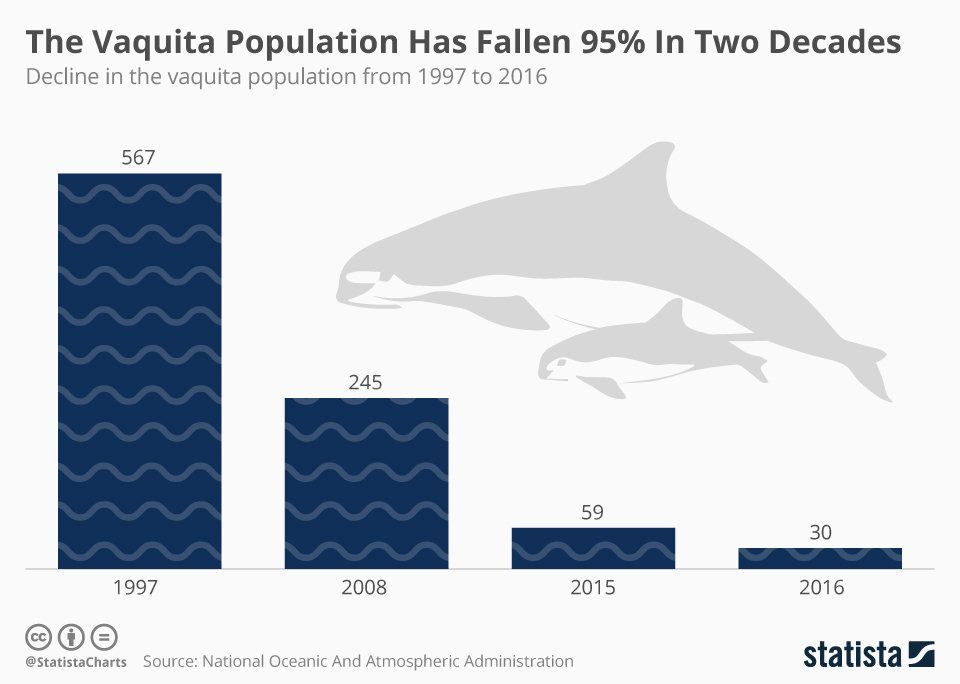Vaquita mothers and calves spotted by scientists in the Gulf of California!
Vaquita porpoises, known as the "Panda's of the Sea", are the world's smallest and most critically endangered cetacean species, but a shimmer of hope has arisen after a number of mothers and calves were recently sighted by scientists on an international mission from the Marine Mammal Research Group for the Mexican ,National Commission of Natural Protected Areas (CONANP), a team from the Whale Museum in La Paz, The Mexican Navy and Sea Shepard Conservation Society.
MEXICO CITY - Scientists fighting the race against extinction for the vaquita porpoise set out last month to conduct surveys for the elusive species, not knowing what they would, or would not find!
Vaquita porpoise ( Phocoena sinus
) are the smallest cetacean on Earth and the most endangered marine mammal. Vaquita inhabit shallow coastal waters off the northern Gulf of California, Mexico and measure up to 1.5 meters in length. Vaquita population declines in recent years have been of global conservation concern. Threats to their survival and cause of increased mortality are a result of illegal gill net fishing for another endangered species endemic to the region, the totoaba fish. Demand in China for the endangered totoaba’s swim bladder, considered to be a delicacy, drives a far-flung criminal network.
Vaquita bycacth in gill net fisheries has resulted in fewer than 20 individuals left, although the numbers could even be in the single digits. Despite prohibition on illegal gill netting for totoaba in the Vaquita sanctuary, there is a lack if enforcement and even active efforts to sabotage the conservation and recovery of the species. Acoustic monitoring gear has been stolen and damaged which has seriously hindered the conservation efforts of researchers in the area.
This year, researchers had to survey using visual observations at sea, and they were happy to encounter two groups of six individuals, and through-out the survey they sighted three mother calf pairs in the waters off San Felipe in Mexico’s Upper Gulf of California.
A rare sight in October 2019: Scientists spot a vaquita mother and calf. Photographs by CONANP/Museo de la Ballena/SSCS.
Until recently, scientists thought that vaquita females only produced a calf every other year, which would allow their population to grow at a rate of 4% per annum, however, in 2017 and 2018, researchers observed the same female with two separate calves, suggesting that vaquita gave birth on an annual basis, potentially doubling their growth rate. However, it may be the case that the vaquita seen with a new calf in two consecutive years in a row may have lost the first calf and became pregnant again the following year. If they are producing new calves every year, this is important and recent attempts to breed vaquita in captivity in an effort to save their species from extinction failed when a an adult female died shortly after it was captured in 2017.
So, the good news is that vaquita are producing new offspring, the bad news is that illegal fishers persist in the region without any enforcement in place to stop them. In one day, over 80 illegal fishers were seen in the area. Conservation efforts will now focus on clearing the waters of hazardous fishing gear and replacing them with rigs that would not entangle the porpoises, but these have not been approved or made available yet.
Scientists are to release a new population count of vaquita in early 2020, however it will undoubtedly show a sharp decline. The totoaba season also begins at the end of this year, just as new government comes into power in Mexico and there is uncertainty as to weather these new officials will prioritise protecting the vaquita. If illegal fishing is not controlled this season it could be catastrophic for the vaquita porpoise species, as every casualty is a massive blow to their extremely low population as it is.
Watching the vaquita go extinct is poignant and shows how short sighted we humans are, draining the seas, killing everything in our wake but there is no wealth on a dead planet, and we cannot continue to exploit species and damage ecosystems.
Read our blog: "Going Going Gone! Extinction is forever" for more information.
© Ocean Research & Conservation Ireland (ORCireland) and www.orcireland.ie , est. 2017. Unauthorized use and/or duplication of this material without express and written permission from this site’s author and/or owner is strictly prohibited. Excerpts and links may be used, provided that full and clear credit is given to Ocean Research & Conservation Ireland and www.orcireland.ie with appropriate and specific direction to the original content.
SHARE THIS ARTICLE


















